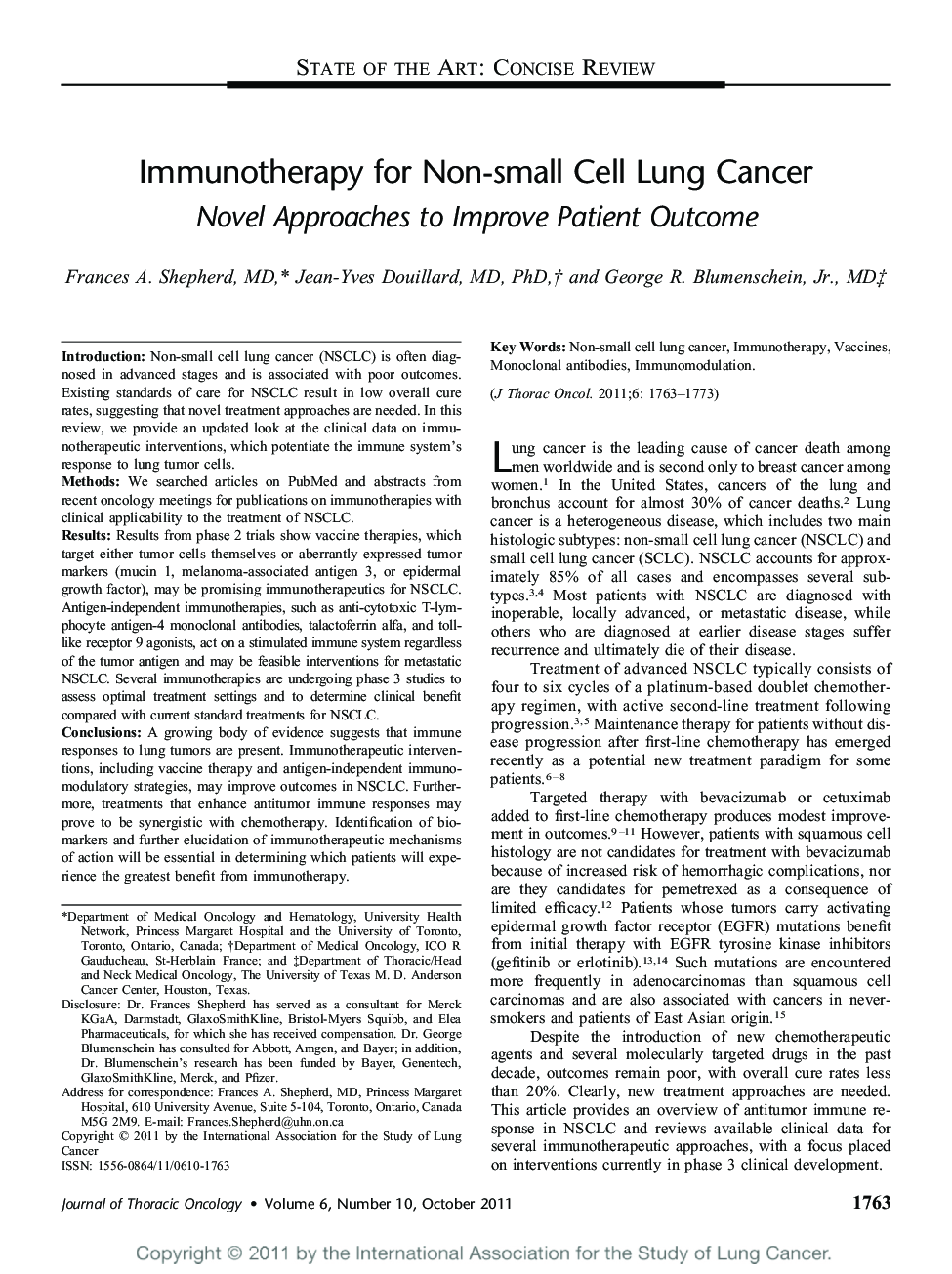| Article ID | Journal | Published Year | Pages | File Type |
|---|---|---|---|---|
| 3991092 | Journal of Thoracic Oncology | 2011 | 11 Pages |
IntroductionNon-small cell lung cancer (NSCLC) is often diagnosed in advanced stages and is associated with poor outcomes. Existing standards of care for NSCLC result in low overall cure rates, suggesting that novel treatment approaches are needed. In this review, we provide an updated look at the clinical data on immunotherapeutic interventions, which potentiate the immune system's response to lung tumor cells.MethodsWe searched articles on PubMed and abstracts from recent oncology meetings for publications on immunotherapies with clinical applicability to the treatment of NSCLC.ResultsResults from phase 2 trials show vaccine therapies, which target either tumor cells themselves or aberrantly expressed tumor markers (mucin 1, melanoma-associated antigen 3, or epidermal growth factor), may be promising immunotherapeutics for NSCLC. Antigen-independent immunotherapies, such as anti-cytotoxic T-lymphocyte antigen-4 monoclonal antibodies, talactoferrin alfa, and toll-like receptor 9 agonists, act on a stimulated immune system regardless of the tumor antigen and may be feasible interventions for metastatic NSCLC. Several immunotherapies are undergoing phase 3 studies to assess optimal treatment settings and to determine clinical benefit compared with current standard treatments for NSCLC.ConclusionsA growing body of evidence suggests that immune responses to lung tumors are present. Immunotherapeutic interventions, including vaccine therapy and antigen-independent immunomodulatory strategies, may improve outcomes in NSCLC. Furthermore, treatments that enhance antitumor immune responses may prove to be synergistic with chemotherapy. Identification of biomarkers and further elucidation of immunotherapeutic mechanisms of action will be essential in determining which patients will experience the greatest benefit from immunotherapy.
